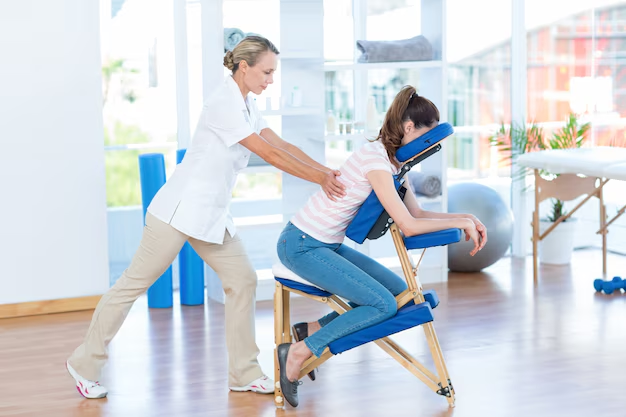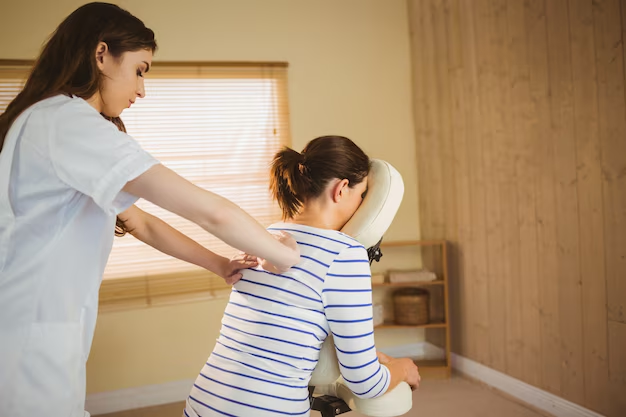How Chair Massage Impacts the Brain’s Stress Response

Chair massage has a measurable effect on the brain’s stress response by influencing key neurochemicals and activating relaxation pathways:
- Reduction of Cortisol: Cortisol, the primary hormone released during stress, often called the “stress hormone,” decreases significantly after chair massage sessions. Even brief sessions (10–20 minutes) can lower cortisol levels, leading to reduced anxiety and increased relaxation.
- Increase in Endorphins: Massage stimulates the release of endorphins—natural neurotransmitters that promote well-being and act as painkillers. These endorphins help reduce pain perception, elevate mood, and foster a sense of overall wellness.
- Activation of the Parasympathetic Nervous System (PSNS): Chair massage triggers the PSNS, responsible for the body’s “rest and digest” state, shifting the body away from “fight or flight.” This is evidenced by increased heart rate variability, lowered heart rate, and a calming mental state.
Neurochemical Changes and Their Psychological Impact
The reduction in cortisol combined with increased endorphins leads to:
- Improved Mood: Lower cortisol and higher endorphins are linked with enhanced mood and reduced depression and anxiety symptoms. Recipients often report feeling more present and better able to focus after a chair massage.
- Reduced Anxiety: Multiple studies show significant drops in anxiety levels post-chair massage compared to rest-only control groups.
- Enhanced Alertness and Cognitive Performance: EEG studies indicate chair massage can boost alertness and cognitive functions such as quicker and more accurate mental tasks, likely due to relaxation and endorphin effects.
Research on Workplace Stress and Morale
In workplace settings, chair massage provides:
- Lower Job Stress Scores: Regular chair massage recipients show decreased job stress over time versus non-recipients.
- Improved Workplace Morale: Consistent massage sessions enhance mood, reduce stress, and improve overall workplace atmosphere and productivity.
- Reduction in Pain and Daily Activity Interference: Especially in high-stress roles like healthcare, chair massage lowers perceived stress and pain, increasing job satisfaction.
Summary Table: Chair Massage Effects on Stress and Mood
| Neurochemical/Pathway | Effect of Chair Massage | Workplace Outcome |
| Cortisol | Decreases | Reduced anxiety, improved mood |
| Endorphins | Increases | Enhanced well-being, pain relief |
| Parasympathetic Nervous System | Activated | Relaxation, lower heart rate, calm mind |
| Job Stress Scores | Decrease over time | Improved morale, less burnout |
Conclusion

Chair massage leverages neuroscience principles to reduce stress by lowering cortisol, increasing endorphins, and activating the body’s relaxation response. These neurochemical changes lead to improved mood, reduced anxiety, and enhanced cognitive function, such as better memory and visual discrimination performance linked to hippocampal activity (source: PubMed). This makes chair massage a scientifically supported tool for improving employee well-being and organizational health.



